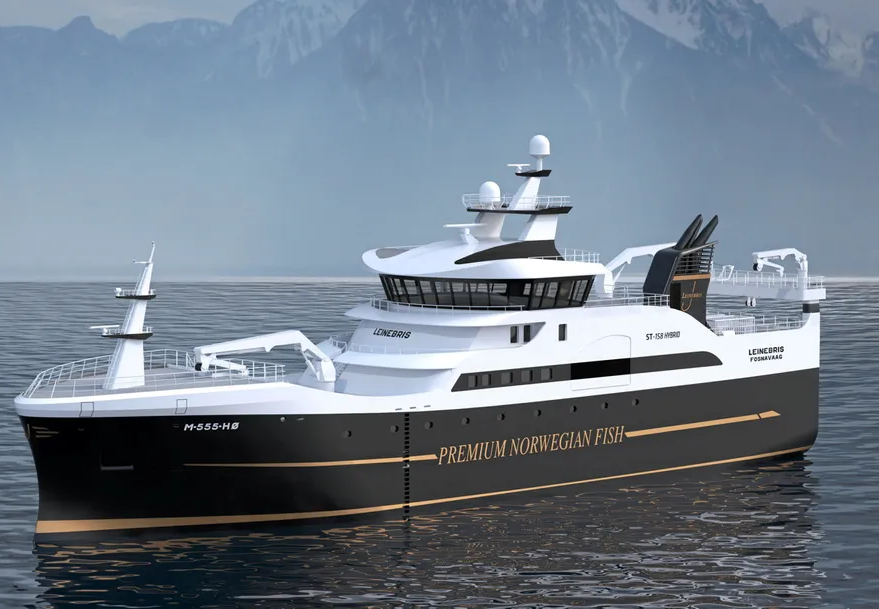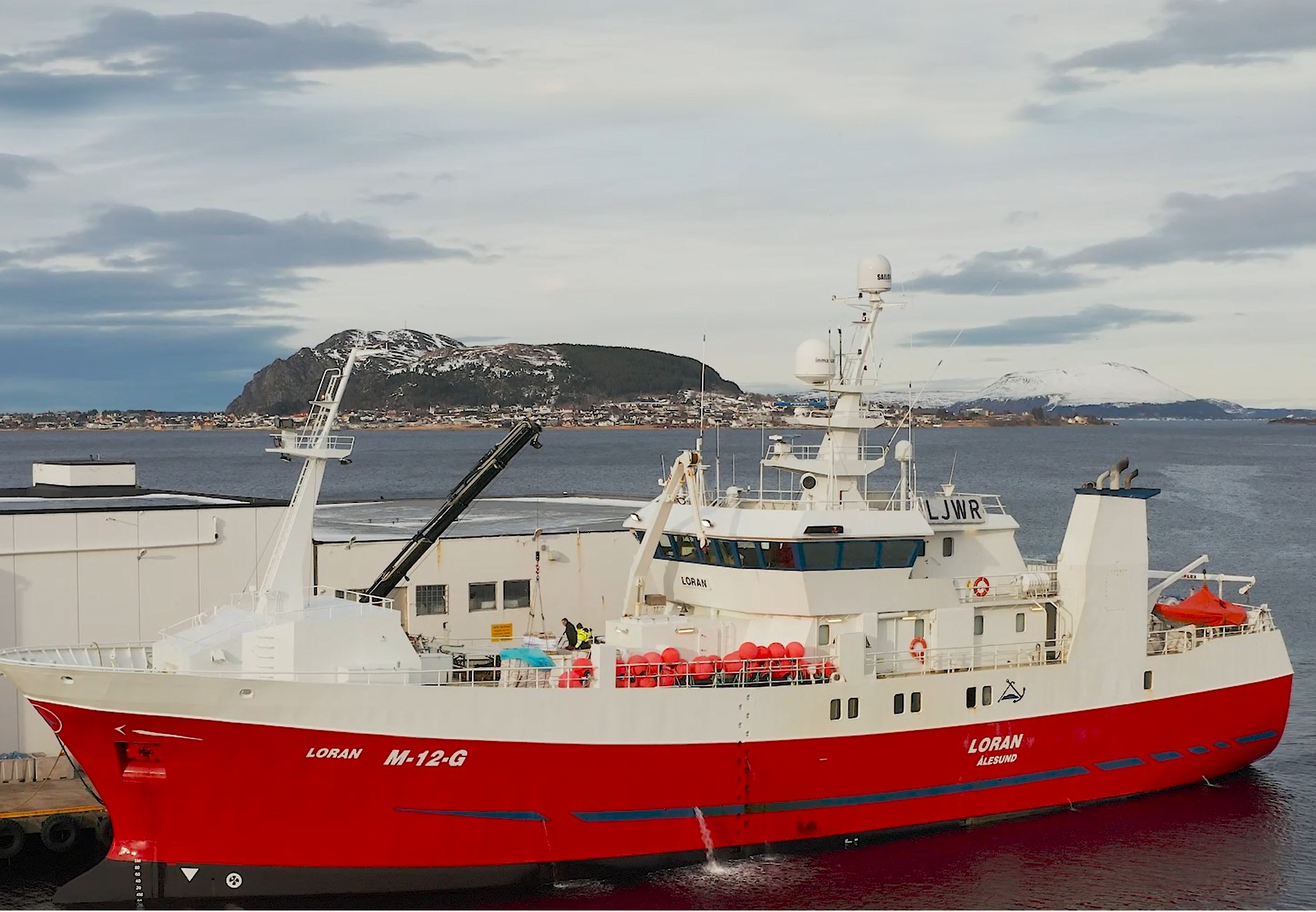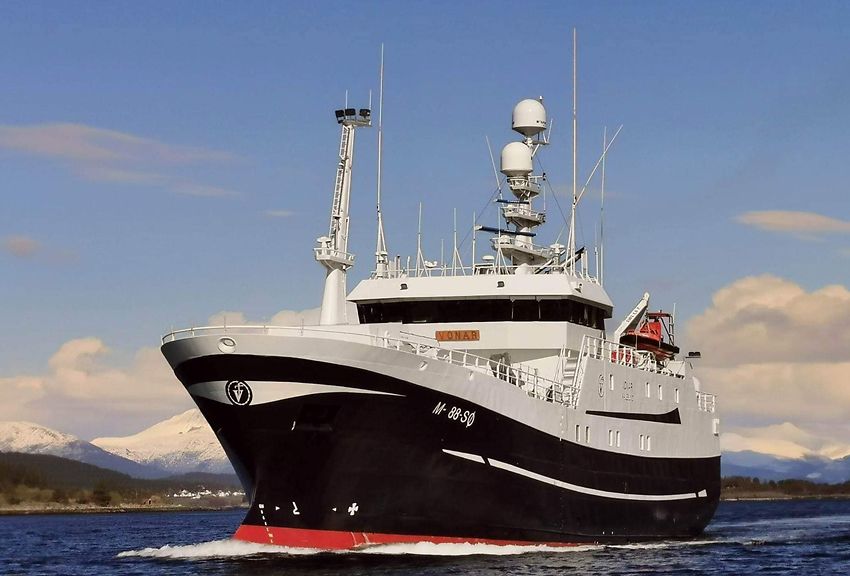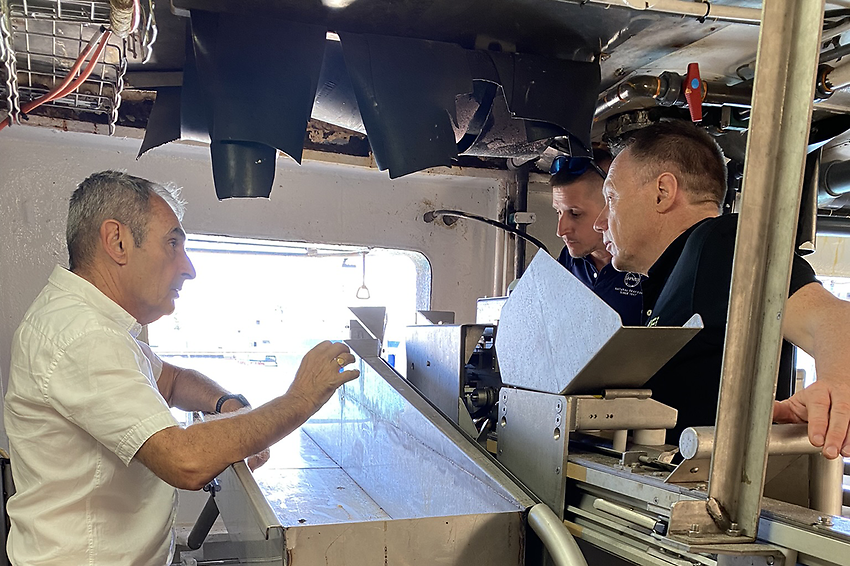LEINEBRIS, Mustad Autoline - A trusted partner for the future of line fishing operations
Mustad Autoline’s E-Line system was the natural choice for this mission. One of the key reasons we trust Mustad Autoline is their proven experience over many years. Their systems are tried and tested over a long period, and we’ve consistently seen the results. In addition, Mustad’s strong customer service is a major asset—whenever we need support, we know we can count on quick and reliable responses. Their accessibility and willingness to listen have built a trust that is invaluable in our operations.
On the technical side, their innovative technology, like the E-Line’s dynamic tension control, ensures consistent line speed and fewer lost fish. For us, Mustad Autoline represents not just cutting-edge equipment but a partner we can rely on for the future of our line fishing operations.

Paul Harald Leinebø, owner, and Åge Uran, owner and chairman of AS Leinebris, are on schedule building their state-of-the-art vessel at Tersan Shipyard in Turkey. Equipped with fully electric deck machinery, including Mustad Autoline’s new all-electric autoline system and net hauler, the new vessel is designed to maximize energy efficiency. «We want to fish for the future and take care of the resources we have in the best possible way,» says Uran. «To do that, we need to think new and build new.» This commitment to innovation and sustainability reflects the company’s forward-thinking approach, aiming to make the most of all the energy generated on board while ensuring the highest standards of efficiency in their fishing operations.
Åge Uran October 2024
LORAN, Ståle Dyb "We get Bigger Catches and Cuts Fuel Costs with Mustad Autoline E-Line System"
Ståle Dyb, skipper and owner of the Norwegian autoliner Loran, has experienced remarkable benefits since switching to the Mustad Autoline E-Line system. According to Dyb, «The result is more fish.» The innovative design of the E-Line system’s dynamic tensioning keeps the line speed consistent underwater, reducing the likelihood of fish shaking off the hook. «When the vessel goes up on a wave,» Dyb explains, «the line almost stops, and when the vessel goes down, it picks up again.» This steady control minimizes slack and maximizes catch rates.
In addition to improving his catch, Ståle Dyb has also seen fuel consumption drop significantly, calculating a savings of about 20 tons of fuel per year (approximately 5,633 gallons). This reduction in power consumption is a direct result of the E-Line’s electric powersupply, which is much more efficient than traditional hydraulic systems.
The comfort of his crew has also increased thanks to the system’s reduced noise and vibration. «The electric motor runs without noise,» says Dyb. «It is much more comfortable to work in less noise, and the crew confirms that. That was their first reaction to the new unit.» With lower energy consumption and a quieter, more efficient operation, the E-Line system has transformed both the working environment on board Loran and the overall operational efficiency.

M/S VONAR - "we are most satisfied with our Mustad Autoline E-Line system, the follow-up and the service!"
We have a close cooperation with Mustad Autoline that goes way back in time and we were never in doubt about our choice of equipment and supplier. When Mustad introduced the new electrically powered E-Line system, we were ready, says Bjartmar Finnøy.
The installation of the new autoline equipment was carried out as expected with necessary supervision from the Mustad team. We felt taken good care of. The Mustad service team were actually praised for being professional by the electrical company working here in connection with the installation 🙂
It’s reassuring for us as a customer that Mustad Autoline has a very capable service team and that they are on hand when the need arises.
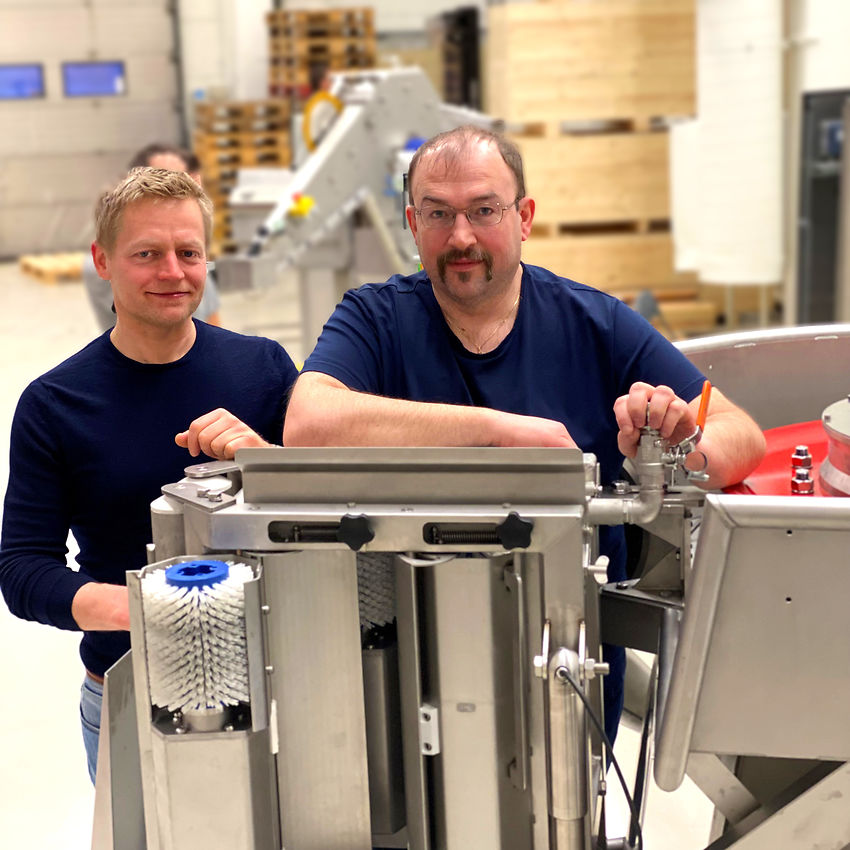
The commissioning and test trip went well, and we have now been in operation for almost four months and three, close to four trips at sea. Not a stop or an interruption in fishing.
Our only comment is the construction of the hook cleaner, which is to be improved. We have discussed this together with the Mustad R&D department at Gjøvik and a change of construction is underway for testing.
The first immediate difference between the hydraulically driven autoline system and the electric system is the smooth hauling and the noise level on board. The difference is huge. The smooth and stable hauling means that we lose less fish off the hooks.
We have not calculated fuel savings and the effect of the improved hauling process yet, but we estimate a reduction of fuel consumption of 50 ton a year, and in addition catch a bit more fish in less fishing days.
From an environmental point of view, it’s obvious that we use less oil and reduce the risk of oil spills. The reduced noise level improves the working environment on board. It is simply cleaner and easier to handle, says Hans, the chief engineer on board.
There’s no doubt that electrically powered systems are the future. I assume that all new-buildings henceforth will choose to go for this solution.
We are most satisfied with the equipment and the follow-up and service offered by Mustad Autoline concludes Bjartmar.
Greetings from Bjartmar Finnøy and Hans Jakob Johansen
ALBIUS / SAPMER fishing with E-Line for toothfish in the Antarctic Sea
The Albius just returned from sea after testing the newly installed 100% electric fishing equipment in normal operations. “It is an innovative system, and the Albius is the first antarctic longliner equipped with this electric autoline system. The hydraulic version generates a lot of noise. This new equipment is silent and much more confortable for the crew. The 100% electric operation also provides a high level of flexibility. The electric control system allows a more stabel hauling process and lowers the risk of breaking the line. Our autoline fishing operations are now optimized”, explains Pascal Wallaert, Head of the Antarctic Pole at SAPMER.
The longliners Ile Bourbon, Albius, Mascareignes 3 and Cap Horn all belonging to SAPMER, operating not far from the 40th Rugissants and 50th Hurlants catching toothfis, have been equipped with automated line fishing equipment since their launch. It is only natural that SAPMER’s operational team approached Mustad in 2021 to collaborate on the new electric version of the fishing gear installed and tested on the Albius.
Sapmer plans to renew its longline fleet in the coming years. “We want to ensure the best possible design for our future toothfish longliners. The integration of an electric autoline system is part of this plan, – for the comfort and safety of the crew of course, but also to fight against depredation and to optimize the fishing process independant of fishing ground and weather conditions. adds Pascal Wallaert.
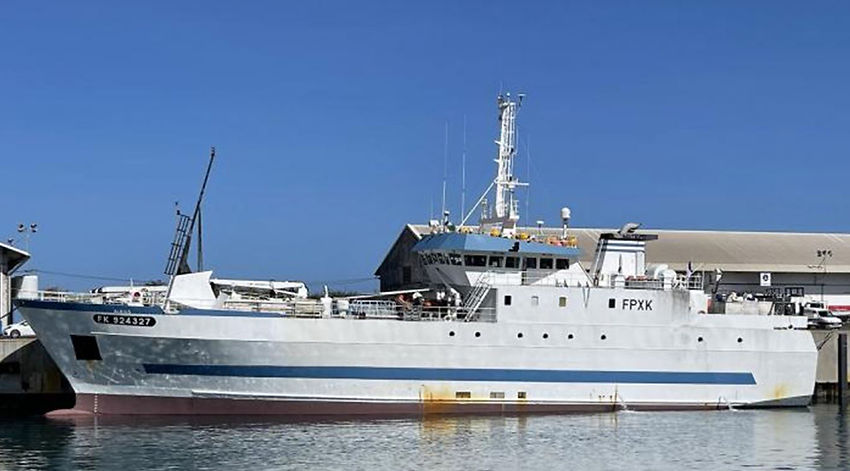
Very satisfying tests
The Albius is the first longliner of its kind to be equiped with an electric autoline system for fishing toothfish. The expectations were hign on both the SAPMER team and the Mustad Autoline team. “All precautions were taken before the vessel left for its first trip fishing for toothfish. «Our vessels are out fishing between 60 and 80 days in a row, all alone and far from the shore. We can’t afford to be negligent about the quality of the fishing equipment” explains Patrick Perron, Captain of the Albius. “The results of this test were beyond our expectations,” he adds. The equipment performed well and met with the expectations of the crew, the captain and the management. Conclution; good for hearing health and safety, synchronized and smooth operations when fishing, more sensitive reaction to the vessel’s movements results in more accurate tension control and tighter lines when hauling. This lower the risk of losing fish and of breaking the line.
Press release from SAPMER published 02.06.23

